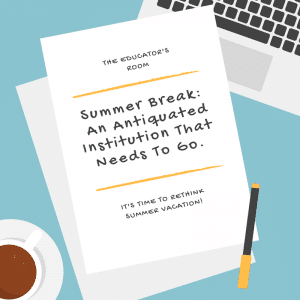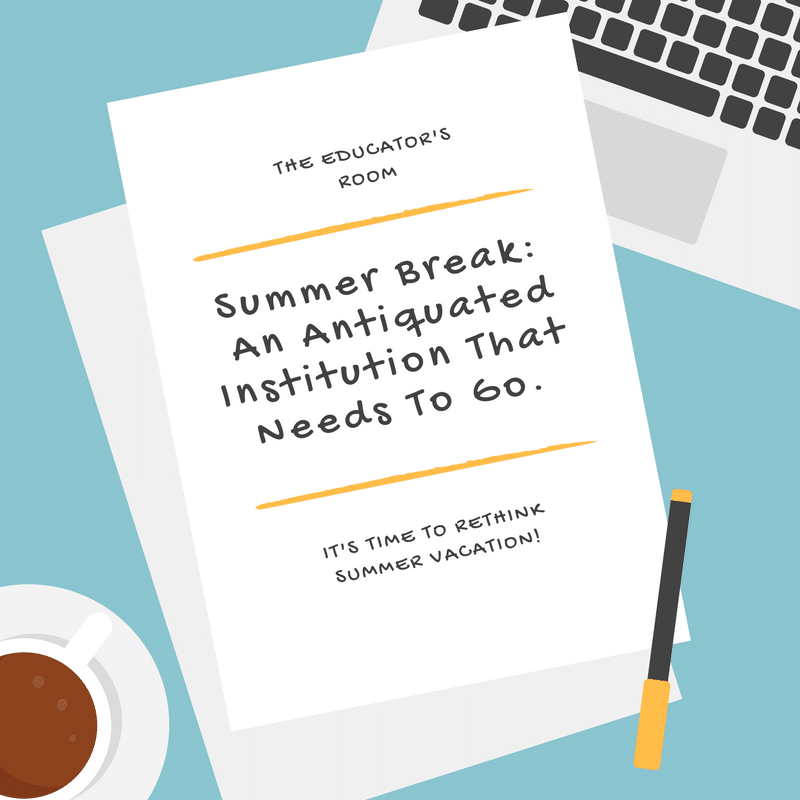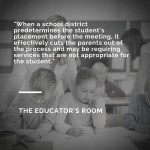Summer break is an American institution. A time when students across the nation leave their intensive classes and venture off to the woods, the pool, the mountains, and the basement. For many students summer break has become synonymous with relaxation, spending time with their family and friends, camp, and heat waves.
For educators, summer break presents a conundrum. We recognize the realities of “summer melt” or lost learning that occurs between June and August. We see our students regressing in literacy and numeracy skills after months off. We attempt to remediate the melt with summer reading and math packets, and we have created optional intensive summer programs to further stave off the melt. But, we need our time to recharge as well. After months of 60 hour weeks, intermittent bathroom breaks, and Sunday grading/planning sessions, the summer is a well-deserved respite and time to plan for the coming school year.
For parents, summer break is a double-edged sword. It presents a unique time to spend uninterrupted time with their kids, building strong bonds and shared experiences. Similarly, it presents a childcare nightmare. Parents who do not have the resources for additional care are left with their young person at home, with relatives, or to the neighborhood happenings.
With more than 100 years of tradition behind the existence of our current school calendar, our educational institutions are conservatively cautious in their approach to summer and the calendar more generally. Selecting dates for time off each year is often challenging enough for schools, let alone considering a more drastic alteration.
Yet, each year educators complain about their students’ skill melt, parents deal with having to secure additional childcare, and kids continue to fall behind because of this huge time gap that we have mysteriously codified in their educational experiences. We often look to band-aid this issue with summer coursework, but a more solid solution must be brought to the table.
Proposed Alternative: A Year-Round Calendar
No student is going to read this article and be excited by the prospect of this alternative. A year-round calendar sounds like possibly the most awful thing imaginable by any school-aged student. But, when taken into context of the broader goals of our education system, it might actually make sense, and for students, it might actually present some positive outcomes.
The proposed calendar is a simple 3-months-on, 1-month-off system:
| Jan | Feb | Mar | Apr | May | Jun | Jul | Aug | Sep | Oct | Nov | Dec |
| On | On | On | Off | On | On | On | Off | On | On | On | Off |
At its core, this solution addresses many of the timing issues that we are concerned with. The base of the calendar is built on the straightforward premise that consistency yields improved learning outcomes. Typical solutions to the school calendar often approach the issue with a volume proposal, increasing the amount of hours students spend in school. But, this solution does not actually address the fundamental flaw in our current calendar. When students arrive back in school in September, we end up having to re-teach 6-8 weeks of lost material from the previous year. The above proposal works to eliminate this lost material and thus eliminate summer melt.
A caveat to the adoption of this calendar is that typical holiday-related or otherwise days off would need to be eliminated. Three months on means three months on, with no other interruptions. No more days off of school for MLK Day, Indigenous People’s Day (what some people know as Columbus Day), Memorial Day, or Labor Day. Instead, these holidays would be spent in school, with the spirit of each day woven into the curricular decisions made by the school. This includes Thanksgiving and Independence Day, probably the most notable of the holidays’ students would be asked to attend during. Sadly, this calendar also does away with the other coveted American experience: Spring Break. Instead, it substitutes this week-long off time with an entire month in April where families can road trip or otherwise enjoy the early spring.
If we are able to be flexible in these areas, families could actually spend a considerable amount more time with their kids, taking three dedicated vacations per year, with learning happening more consistently throughout the entire year. Plus, the time spent during these dedicated breaks could actually be spent taking a break from school, rather than completing readings or math packets that we ask students to do now to ward away the melt from our current longer break. Additionally, so much learning and bonding for our young people happens with their families or friends during breaks that taking these coveted times away does not actually make much sense. Rather than take away these opportunities through a calendar that requires students to spend a substantial amount of additional time in school, the proposal above respects this time off, simply re-allocating it in a more purposeful pattern.
For educators, the calendar still presents time for us to turn off our brains and relax, while providing adequate time for preparation. It also provides some manageable chunks of time to plan for. Instead of nearly 180 straight days of school, we would plan for 60 straight days, three times per year.
Finally, after thinking about this proposal for a while, I reflected on why I was initially so reticent to even consider adopting change. After some time, I realized that my hesitation was mostly because of nostalgia. I want my students to have the same awesome summers off and breaks that I had. I want my students to spend time in the woods and with their friends much the same way that I did. But, once I moved past these reminiscent feelings and examined what would be best for the long-term goals of my students, I came to a clear solution: Summer break needs to go.







